Marble Etching and Staining
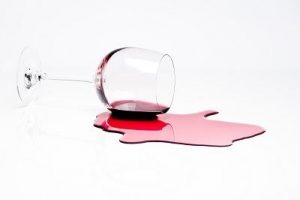 Marble is a natural stone with a soft, porous surface susceptible to stains and etching. Some liquids wipe up easily, but others leave a stain and fade over time. Many common substances can stain marble, including:
Marble is a natural stone with a soft, porous surface susceptible to stains and etching. Some liquids wipe up easily, but others leave a stain and fade over time. Many common substances can stain marble, including:
Marble stains because it absorbs the substance and draws it into pores beneath the surface creating a dark spot (although the finish is not affected). Stains in marble are usually not permanent but marble stains do need to be removed carefully.
What is Marble Etching?
Marble is primarily calcium carbonate, a substance which reacts to any type of acid. Acids eat away at the surface and create dull spots called etches. Etching is small-scale erosion and can often only be seen in certain light.
Acids like lemon juice, tomato sauce, vinegar, coffee, tea, soda and alcohol can etch marble countertops. Many homeowners who choose marble for the kitchen believe etching and staining add personality to the marble, in essence recording the story of their life.
Etching tends to be less visible on honed marble than polished marble. While a honed marble kitchen island or dining room table may become lightly marked from spills and scratches, the same marks will be much more obvious on polished marble.
Marble used for floors, bathrooms and backsplashes is less likely to stain and etch due to less contact with food and drink. With proper polishing or sealing, marble’s resistance to marking increases significantly.
Contact our Milwaukee area marble experts for more help choosing the right stone material for you and your home.












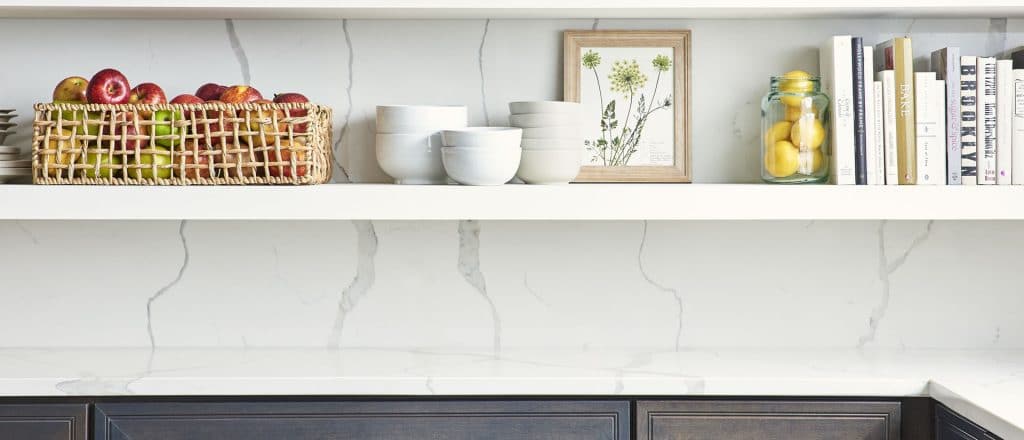 Marble is one of the most durable options for not only kitchen countertops, but for bathroom vanities and countertops, kitchen islands, dining table tops, flooring and backsplashes. Marble adds instant luxury wherever it’s found. Marble will not only make your home look more elegant, but it will also significantly add value as it is one of the most highly prized materials for a home. When properly maintained, marble will last a lifetime.
Marble is one of the most durable options for not only kitchen countertops, but for bathroom vanities and countertops, kitchen islands, dining table tops, flooring and backsplashes. Marble adds instant luxury wherever it’s found. Marble will not only make your home look more elegant, but it will also significantly add value as it is one of the most highly prized materials for a home. When properly maintained, marble will last a lifetime. 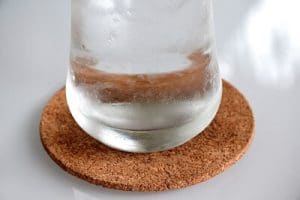 Some homeowners are intimidated by marble. They’ve heard it requires a lot of maintenance and is easy to stain. Others love the way marble gains character as you live with it by etching over time. The truth is marble countertops don’t require any special day-to-day care and most stains and etching can be prevented.
Some homeowners are intimidated by marble. They’ve heard it requires a lot of maintenance and is easy to stain. Others love the way marble gains character as you live with it by etching over time. The truth is marble countertops don’t require any special day-to-day care and most stains and etching can be prevented.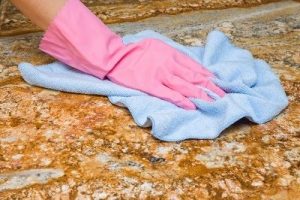 Cleaning your marble countertop is easy and requires only basic supplies:
Cleaning your marble countertop is easy and requires only basic supplies: Marble is a natural stone with a soft, porous surface susceptible to stains and etching. Some liquids wipe up easily, but others leave a stain and fade over time. Many common substances can stain marble, including:
Marble is a natural stone with a soft, porous surface susceptible to stains and etching. Some liquids wipe up easily, but others leave a stain and fade over time. Many common substances can stain marble, including: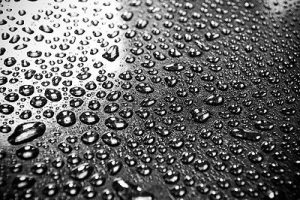 If your polished marble countertop has etching and dull spots, you may want to re-polish it. Polishing can remove minor scratches and etching. Although you can do polish marble yourself, the process requires tools not everyone has.
If your polished marble countertop has etching and dull spots, you may want to re-polish it. Polishing can remove minor scratches and etching. Although you can do polish marble yourself, the process requires tools not everyone has.
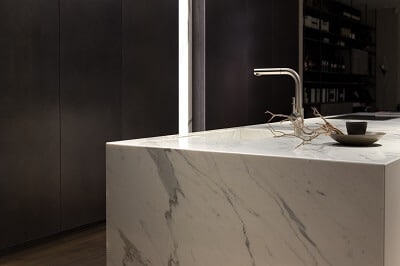 Honed marble surfaces have a matte appearance and satiny texture. Polished marble surfaces are smoother and glossy.
Honed marble surfaces have a matte appearance and satiny texture. Polished marble surfaces are smoother and glossy.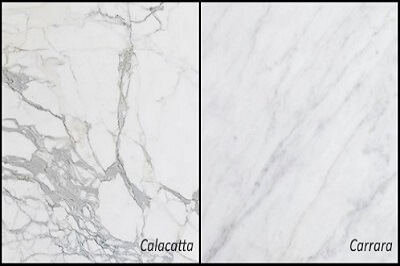
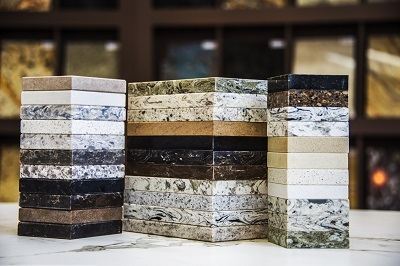 Marble, granite and quartz each have different properties and strengths to consider when choosing stonework for your home. Marble, in particular, has unique qualities making it a favorite for prestige architecture and luxurious interior design.
Marble, granite and quartz each have different properties and strengths to consider when choosing stonework for your home. Marble, in particular, has unique qualities making it a favorite for prestige architecture and luxurious interior design.